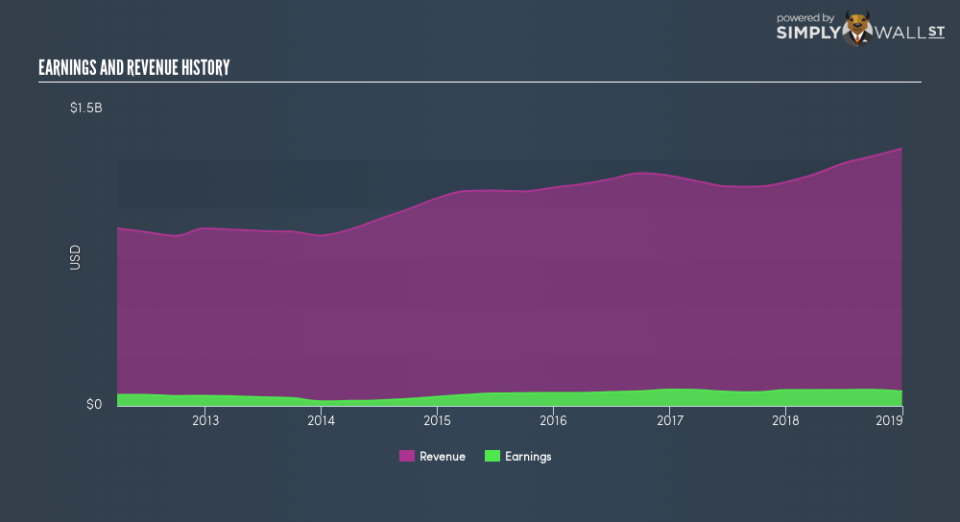Should You Be Concerned About Knoll, Inc.’s (NYSE:KNL) Historical Volatility?

Want to participate in a short research study? Help shape the future of investing tools and you could win a $250 gift card!
If you’re interested in Knoll, Inc. (NYSE:KNL), then you might want to consider its beta (a measure of share price volatility) in order to understand how the stock could impact your portfolio. Volatility is considered to be a measure of risk in modern finance theory. Investors may think of volatility as falling into two main categories. The first category is company specific volatility. This can be dealt with by limiting your exposure to any particular stock. The other type, which cannot be diversified away, is the volatility of the entire market. Every stock in the market is exposed to this volatility, which is linked to the fact that stocks prices are correlated in an efficient market.
Some stocks are more sensitive to general market forces than others. Some investors use beta as a measure of how much a certain stock is impacted by market risk (volatility). While we should keep in mind that Warren Buffett has cautioned that ‘Volatility is far from synonymous with risk’, beta is still a useful factor to consider. To make good use of it you must first know that the beta of the overall market is one. A stock with a beta greater than one is more sensitive to broader market movements than a stock with a beta of less than one.
View our latest analysis for Knoll
What does KNL’s beta value mean to investors?
Given that it has a beta of 1.26, we can surmise that the Knoll share price has been fairly sensitive to market volatility (over the last 5 years). If the past is any guide, we would expect that Knoll shares will rise quicker than the markets in times of optimism, but fall faster in times of pessimism. Many would argue that beta is useful in position sizing, but fundamental metrics such as revenue and earnings are more important overall. You can see Knoll’s revenue and earnings in the image below.
Does KNL’s size influence the expected beta?
Knoll is a small cap stock with a market capitalisation of US$996m. Most companies this size are actively traded. It’s not particularly surprising that it has a higher beta than the overall market. That’s because it takes less money to influence the share price of a smaller company, than a bigger company.
What this means for you:
Beta only tells us that the Knoll share price is sensitive to broader market movements. This could indicate that it is a high growth company, or is heavily influenced by sentiment because it is speculative. Alternatively, it could have operating leverage in its business model. Ultimately, beta is an interesting metric, but there’s plenty more to learn. This article aims to educate investors about beta values, but it’s well worth looking at important company-specific fundamentals such as Knoll’s financial health and performance track record. I highly recommend you dive deeper by considering the following:
Future Outlook: What are well-informed industry analysts predicting for KNL’s future growth? Take a look at our free research report of analyst consensus for KNL’s outlook.
Past Track Record: Has KNL been consistently performing well irrespective of the ups and downs in the market? Go into more detail in the past performance analysis and take a look at the free visual representations of KNL’s historicals for more clarity.
Other Interesting Stocks: It’s worth checking to see how KNL measures up against other companies on valuation. You could start with this free list of prospective options.
To help readers see past the short term volatility of the financial market, we aim to bring you a long-term focused research analysis purely driven by fundamental data. Note that our analysis does not factor in the latest price-sensitive company announcements.
The author is an independent contributor and at the time of publication had no position in the stocks mentioned. For errors that warrant correction please contact the editor at editorial-team@simplywallst.com.

